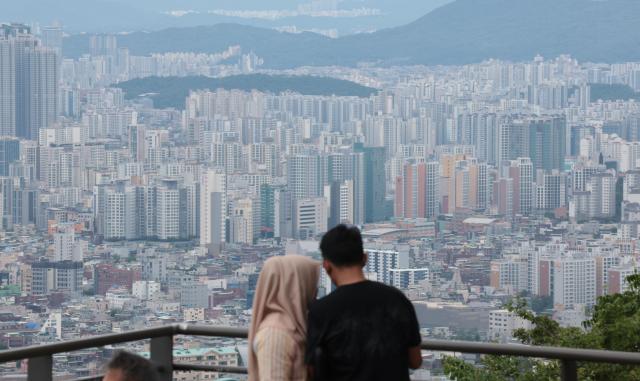The rule, which caps home mortgage loans at 600 million won (approximately $430,000), is intended to curb speculative buying and stabilize soaring home prices in Seoul. But critics warn it could further squeeze middle-class buyers out of the market.

Under the new regulation, even high-income households that qualify for the maximum loan would still need at least 860 million won in cash to purchase an average apartment in Seoul, where prices now hover around 1.46 billion won.
The measure effectively limits access to the city’s real estate market to wealthier individuals with significant liquidity.
The policy is expected to affect more than 1.27 million households — roughly 74 percent of Seoul’s 1.71 million apartment units — according to government data.
Until now, buyers in high-priced districts such as Gangnam and Seocho, where average apartment prices exceed 3 billion won, were allowed to borrow up to 50 percent of a property's value. That translated to loans of 1.5 billion won or more.
Going forward, however, financing will be capped at just 600 million won, requiring buyers to bring upwards of 2.5 billion won in cash to secure a property.
Analysts say the rule is likely to entrench existing inequality in the market, limiting entry to high-income professionals and so-called “cash-rich” buyers.
“We’re seeing the emergence of a housing market that caters almost exclusively to the wealthy,” said one housing policy researcher in Seoul. “This could deepen socioeconomic divisions.”
At the same time, there are growing concerns about a potential “exodus” of demand from central Seoul to outlying districts, including the greater Gyeonggi Province and Incheon, where housing is more affordable.
While the regulation may suppress demand in the short term, some economists warn of a balloon effect, as buyers shift their focus to lower- and mid-priced areas in search of alternatives.
In the immediate term, a slowdown in transactions across the capital region appears inevitable.
The new policy also ties loan issuance to actual occupancy, further narrowing the pool of eligible buyers to end-users rather than investors or multiple-home owners.
Some in the industry are sounding alarms about potential workarounds and unintended consequences.
“There’s a high likelihood of people turning to secondary lenders or even illegal channels,” said a realtor in Seoul’s Banpo-dong. “As the rules tighten, so do the methods to evade them.”
Copyright ⓒ Aju Press All rights reserved.




